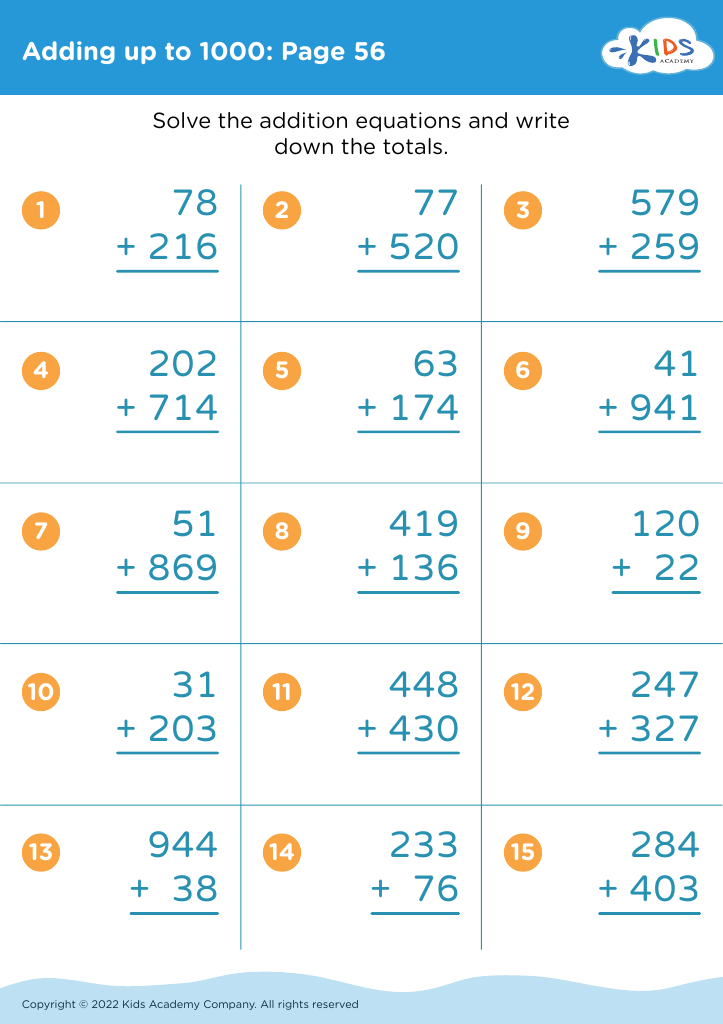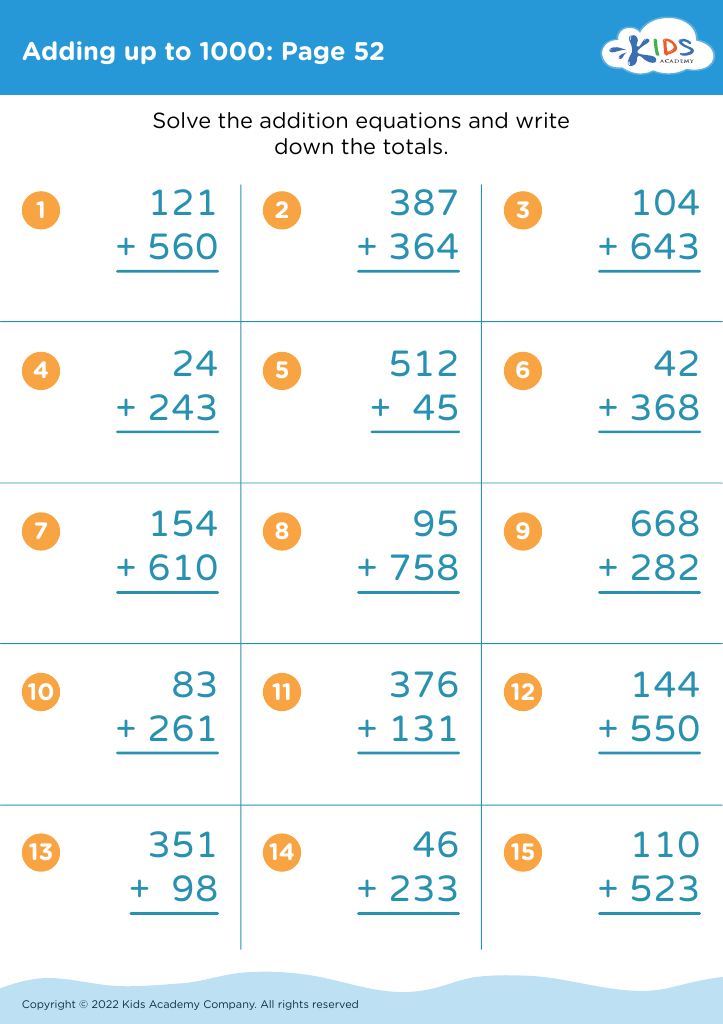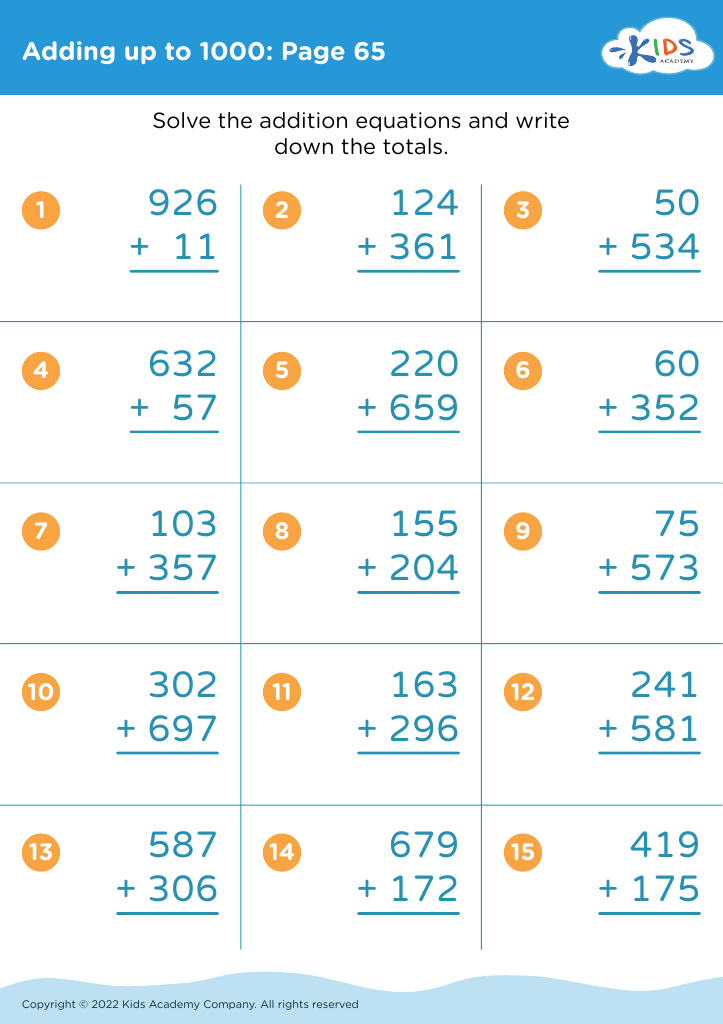Mathematical reasoning Grade 3 Adding up to 1000 Misc Worksheets
5 filtered results
-
From - To
Enhance your third grader’s mathematical reasoning skills with our "Adding Up to 1000 Misc Worksheets." Designed for learners at Grade 3, these engaging worksheets provide diverse exercises that help children master addition concepts and improve number sense. Each worksheet encourages students to practice adding numbers in fun and interactive ways, promoting critical thinking and problem-solving abilities. With a variety of challenges, from simple addition to more complex number puzzles, your child will build confidence and proficiency in math. Explore our collection today and support your child’s journey towards mastering mathematical reasoning while making learning enjoyable!
Mathematical reasoning in Grade 3 is crucial, particularly when it involves adding up to 1000. This foundational skill not only enhances students’ number sense but also fosters critical thinking and problem-solving abilities. Parents and teachers should care about this aspect for several reasons.
Firstly, mastering addition up to 1000 lays a solid groundwork for more complex mathematical concepts in future grades. It builds confidence and encourages a positive relationship with math, reducing anxiety and fears around the subject. When students understand how to manipulate numbers effectively, they develop the ability to approach real-world problems with a mathematical mindset.
Secondly, strong mathematical reasoning encourages logical thinking. This skill is essential not just in academics but also in everyday decision-making processes. By promoting a focus on reasoning, educators and parents help students learn to make connections between concepts, discern patterns, and justify their thought processes—skills that are invaluable throughout life.
Lastly, fostering a rich understanding of mathematical concepts ensures equity in education. Children who master foundational math skills are better equipped to succeed in standardized assessments, ultimately impacting their future educational opportunities. Therefore, it is imperative for both parents and teachers to prioritize the development of mathematical reasoning in young learners.














